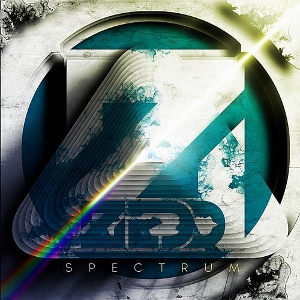| "Eat You Up" | ||||
|---|---|---|---|---|
 | ||||
| Single by BoA | ||||
| from the album BoA | ||||
| Released | October 21, 2008 | |||
| Format | ||||
| Recorded | April 2008 | |||
| Genre | Electropop | |||
| Length | 3:13 | |||
| Label | S.M. Entertainment USA | |||
| Songwriter(s) | ||||
| Producer(s) | Henrik Jonback | |||
| BoA singles chronology | ||||
| ||||
"Eat You Up" is a song recorded by South Korean recording artist BoA for her twelfth studio and debut English eponymous studio album (2009). It was released on October 16, 2008 in Japan as the lead single from the album. The song was written by Remee and Thomas Troelsen, while production was handled by Henrik Jonback. The song was BoA's first attempt into the Western market, particularly North America. Musically, the track was described as an electronic dance song with elements of R&B.

Kwon Bo-ah, known professionally as BoA, is a South Korean singer, songwriter, record producer and actress active in South Korea and Japan. Dubbed the "Queen of K-pop", BoA has been recognized as one of the most successful and influential Korean entertainers throughout her career.

BoA is the first US studio album by South Korean pop singer BoA and her twelfth studio album overall. The album was released on March 17, 2009, in the United States. BoA was released in Japan boxed with her second greatest hits album, Best & USA, as a 2-in-1 CD. BoA debuted on the Billboard 200 at #127 and topped the Billboard's Top Heatseekers (Pacific). On August 31, BoA: Deluxe was released digitally via iTunes and includes the single version of "Energetic" and two bonus songs, "Crazy About" and "Control". On September 22, 2009, the album was released worldwide.

Remee Sigvardt Jackman, better known as Remee, is a Danish producer, composer and songwriter.
Contents
- Background and composition
- Critical reception
- Accolades
- Commercial response
- Music videos
- Promotion and legacy
- Track listing
- Credits and personnel
- Charts and sales
- Charts
- Sales
- References
- External links
Upon its release, "Eat You Up" garnered positive reviews from music critics. Many critics commended the song's electronic and dance-infused composition, and praised the song's commercial appeals; they also felt it was a choice to release through Western markets, and felt BoA's English skills had improved. It was successful on the US Billboard Dance Club Songs chart, peaking at number eight and staying in the chart for 12 consecutive weeks.

Billboard is an American entertainment media brand owned by the Billboard-Hollywood Reporter Media Group, a division of Eldridge Industries. It publishes pieces involving news, video, opinion, reviews, events, and style, and is also known for its music charts, including the Hot 100 and Billboard 200, tracking the most popular songs and albums in different genres. It also hosts events, owns a publishing firm, and operates several TV shows.
The Dance Club Songs chart is a weekly chart published exclusively by Billboard in the United States. It is a national survey of the songs which are the most popular in nightclubs across the country and is compiled from reports from a national sample of disc jockeys. It was launched as the Disco Action Top 30 chart on August 28, 1976, and became the first chart by Billboard to document the popularity of dance music. Since its inception, several artists have set various records and garnered multiple achievements. In January 2017, Billboard proclaimed Madonna as the most successful artist in the history of the chart, ranking her first in their list of the 100 top all time dance artists and Janet Jackson being the second most successful dance club artist of all-time; Madonna also holds the record for the most number-one songs, with 47. Katy Perry holds the record for having eighteen consecutive number-one songs. Perry's third studio album, Teenage Dream (2010), became the first album in the history of the chart to produce at least seven number-one songs between 2010–12, a record it held solely until Rihanna's eighth studio album Anti produced eight chart toppers through 2016-17. Rihanna is the only artist to have achieved five number-one songs in a calendar year.
Two music videos were created for the single; the first had BoA dancing in ballet recital with back-up dancers, whilst the second has her dancing in a utopian-inspired planet. BoA performed the single during several of her concerts, including her Nowness and Who's Back? concert tours. Since its release, the song has received several recognitions and has been listed on several best lists by Eastern and Western publications. "Eat You Up" is one of the first songs by a Korean artist to be produced and written by Western producers, and is recognized as a key factor to the Korean Wave movement.
The Korean Wave is the increase in global popularity of South Korean culture since the 1990s. First driven by the spread of K-dramas and K-pop across East, South and Southeast Asia during its initial stages, the Korean Wave evolved from a regional development into a global phenomenon, carried by the Internet and social media and the proliferation of K-pop music videos on YouTube. The term Hallyu was first used by the Ministry of Culture and Tourism in South Korea in 1999, when the ministry produced a music CD titled in Chinese "Hallyu—Song From Korea". The term was adopted by Chinese media to refer to the success of South Korean popular culture in China. The term was reintroduced in Japan as hanryu or kanryu by the Asahi Shimbun in 2001.



















